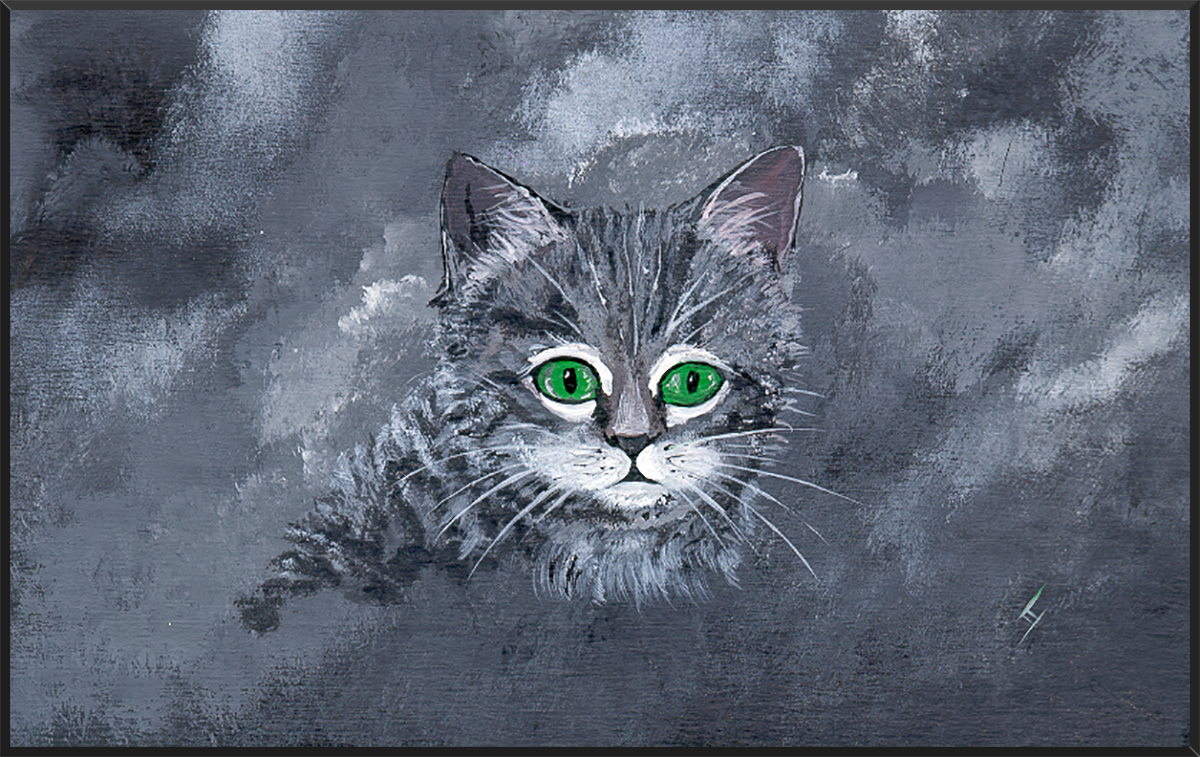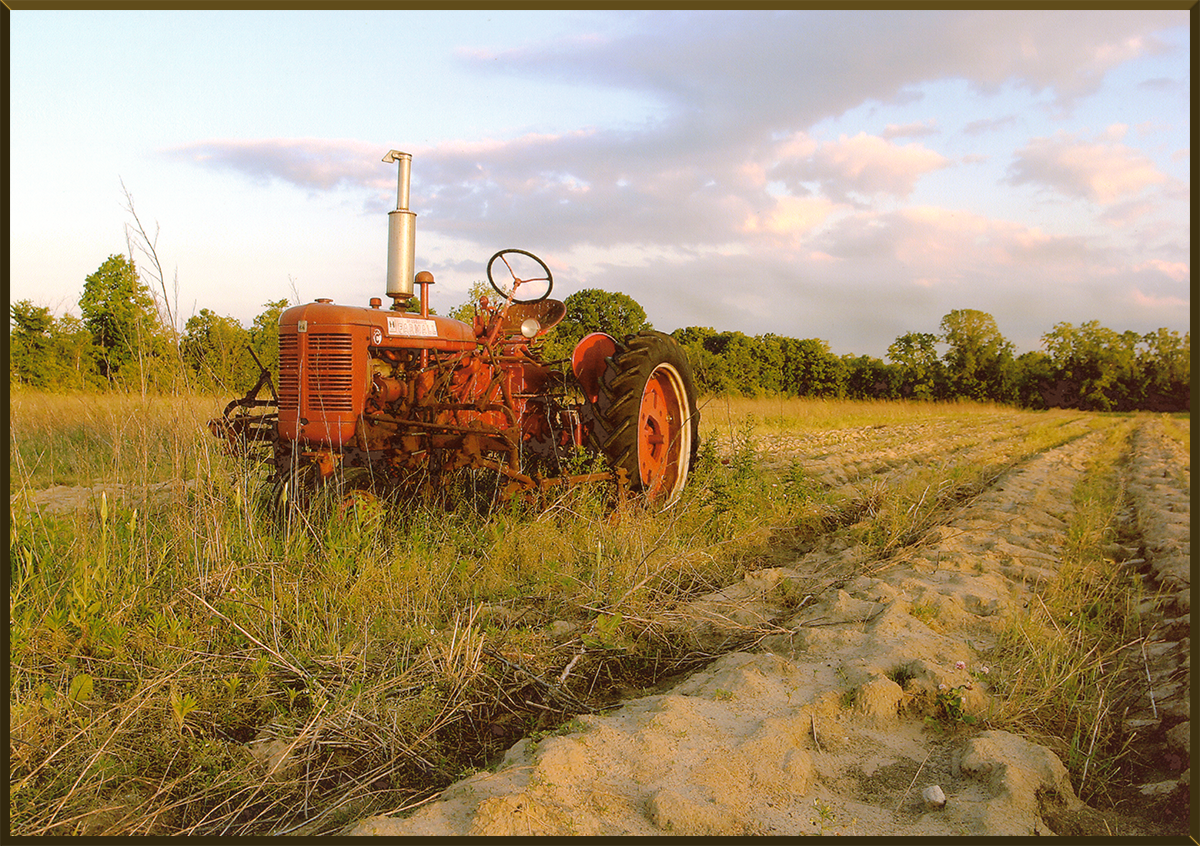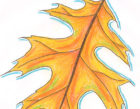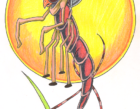Willow Fly with Me?
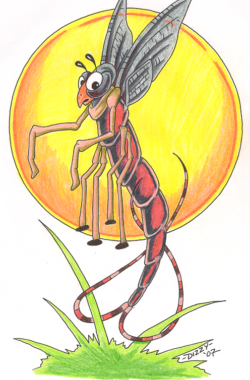
An essay by Stephen Geez
Springtime across wide swaths of North America brings a bounty of bugs called willowflies—or mayflies or fishflies or, when they swarm by the gazillions, several other names best not used in polite company.
 Avoiding the encyclopedic details, let’s just agree they’re delicate wisps with gossamer wings and double-stranded tails like fine thread. Harmless for their lack of bite or sting, not known to carry or spread any maladies, willowflies are generally uninterested in you or your busy lives. Fishermen and -women appreciate the rabid frenzy they incite among the most angler-coveted bait-biters, from sleek trout darting up cold swift streams to fat pan-sized bream schooling amid brush in warm glassy ponds; but to most of us familiar with the species, they’re known for the short adult lives they lead.
Avoiding the encyclopedic details, let’s just agree they’re delicate wisps with gossamer wings and double-stranded tails like fine thread. Harmless for their lack of bite or sting, not known to carry or spread any maladies, willowflies are generally uninterested in you or your busy lives. Fishermen and -women appreciate the rabid frenzy they incite among the most angler-coveted bait-biters, from sleek trout darting up cold swift streams to fat pan-sized bream schooling amid brush in warm glassy ponds; but to most of us familiar with the species, they’re known for the short adult lives they lead.
Yes, the lifespan of these delicate wind-blown denizens is measured not in years or weeks, but in mere hours.
In this regard they are quite opposite the human race. We’re known for the longest of childhoods, the better to fill our brains with the knowledge and skills and cultural memes needed to navigate our complex civilizations. Then we can reasonably expect our adulthoods to last another five decades or more.
Now, that leaves us with plenty of time to waste, no matter how goal-driven or productive we are. Even in that phase of life when we’re most driven to add our own twigs to the family tree, we are able to reach beyond mere reproductive urges in order to seek deeply abiding emotional bonds, which is possible only because we have what the poets call “time enough for love.”
The willowfly spends most of its life—its childhood—in the water. Eggs laid during the springtime lead to ravenous summer larvae that fatten during the fall before settling in to become pupal mud-slumberers during long cold winters. The warmth of springtime sets the ancient cycle into fast motion, when willowflies “hatch” and emerge as perfect imagos, drying quickly, then swarming in great clouds and gobbing every surface for miles, their very brief lives dedicated to mating, laying, and dying. Many have to settle for filling the bellies of fat toads and largemouth bass, but that role nevertheless helps more than enough of their brethren survive long enough to propagate the species.
Lots of people live that same kind of hurry.
One n ewspaper advice columnist reassures a young woman that she is not a total loser for failing to keep pace with her friends who all married and produced broods of two-point-four children by age 23. Sure, it would be nice to live long enough for a chance to pose as the eldest in one of those five-generation photos, but how fun would that be if it caps a lifetime of settling for Mr. Okay, or enduring a series of failed marriages to Ms. She-can-cook, Missy Lets-me-gamble, Senorita Anytime-I-want, and Widow Has-her-own-money. Willowflies, near as we can tell, don’t care whom they “hook up with.”
ewspaper advice columnist reassures a young woman that she is not a total loser for failing to keep pace with her friends who all married and produced broods of two-point-four children by age 23. Sure, it would be nice to live long enough for a chance to pose as the eldest in one of those five-generation photos, but how fun would that be if it caps a lifetime of settling for Mr. Okay, or enduring a series of failed marriages to Ms. She-can-cook, Missy Lets-me-gamble, Senorita Anytime-I-want, and Widow Has-her-own-money. Willowflies, near as we can tell, don’t care whom they “hook up with.”
I mean, when it’s now or never, who’s got the time to look around, or to hope love will find you?
My friend waited until she finally found the man she truly loved—just before they discovered he suffered a severe, life-threatening illness. Suddenly he wouldn’t have qualified for that young miss y writing to advice columnists. That man didn’t fit any plan, but my friend married him anyway because she, well, she loved him—even though that meant spending their honeymoon across country at a clinic promisi
y writing to advice columnists. That man didn’t fit any plan, but my friend married him anyway because she, well, she loved him—even though that meant spending their honeymoon across country at a clinic promisi
ng little more than a fading glimmer of hope, a place he ultimately never left, making her a widow after only two weeks.
Don’t feel sorry for the willowfly because its life is so short. Feel sorry for it because it can never learn how to live in its short time.
Don’t pity the young widow who found the man she loved right before watching helplessly as he slipped away, or the elderly bachelor who waits a lifetime to spy the one in a shawl-draped wheelchair across the assisted-living center rec-room. Do pity all those other souls who approach life like a willowfly, only to spend five decades or more feeding the relentless demands of abiding regret, wondering what they missed.
Step outside come springtime, and walk among the willowflies. You’ll find that one might just land on your arm and sit very still, its gossamer wings and double-stranded tail like fine thread stirring in the breeze. By then, it will have accomplished its only goal, and will be spending a few moments—its last moments—on a chance simply to rest.
I hope, my friends, that you all live long and productive lives. Still, even the longest-lived among us must eventually discover that our time here seems but an instant. However you choose to spend yours, just remember how lucky you are. You can achieve what a willowfly will never know.
Don’t squander this chance, for you have been blessed with the most precious gift:
Time enough for love.





